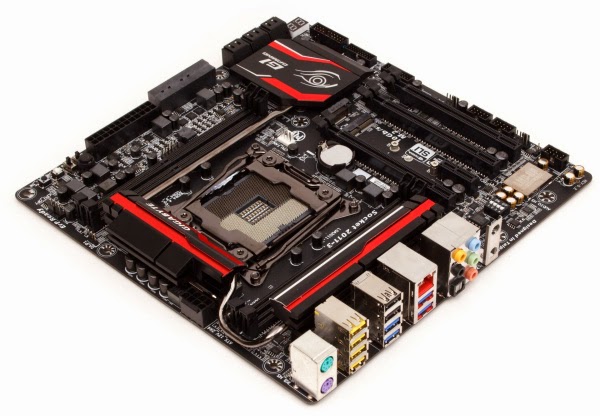For many enthusiasts, high-performance components and a quiet computing experience are mutually exclusive. If you need a computer capable of delivering impressive frame rates in all the latest games, you’ll probably prioritize performance over unobtrusiveness. Here we’ll dig deep into our bag of tips, and even bend the ears of expert modders Bob Stewart and Rod Rosenberg (www.bsmods.com), for how best to decimate decibels. It’s true, you can have your highpowered cake and eat it (very quietly) too.
Friday, 2 January 2015
Creative Sound Blaster X7
Posted by:
Unknown
High-fidelity audio is undeniably important to the enthusiast. The soundtrack and sound effects are one side of the gaming experience coin, but it’s the rare gamer who puts as much thought and money into audio hardware as he does his graphics hardware. Creative’s Sound Blaster X7, an external sound card designed to handle about every audio source imaginable, may convince you to do just that.
The device is a chunky truncated triangular box that takes a fair amount of desk space. Thankfully, the X7 ships with snap-in headset stand, which helps to justify the footprint.
GIGABYTE GA-X99M-Gaming 5
Posted by:
Unknown
We’ve covered a lot of small form factor hardware in recent months, and the GIGABYTE GA-X99M-Gaming 5 might be the best of the bunch. GIGABYTE shrinks the X99 chipset down to the mATX form factor, so you’ll be able to use Haswell-E processors and quad-channel DDR4 in your portable gaming rig. This tiny powerhouse also supports 2-way SLI and CrossFire, PCI-E storage devices (via both a SATA Express and M.2), and GIGABYTE’s AMP-UP Audio Technology. Designing a potent SFF system should be no problem with this motherboard.
How I learned to stop worrying and love the game
Posted by:
Unknown
JASON PICKER looks at the new wave of videogame research that is debunking the myths and unlocking the benefits of moderate gaming.
Over the last decade or so, there has been a steady rise in the number and proportion of Australians with mental health disorders. According to the statistics, almost half of us will grapple with conditions such as anxiety, depression, bipolar disorders and substance abuse at some point in our lives. While the reasons for the increase can be at least partly attributed to improved diagnostics and reporting, some opportunistic media outlets and community groups have been quick to point the finger at videogames.



